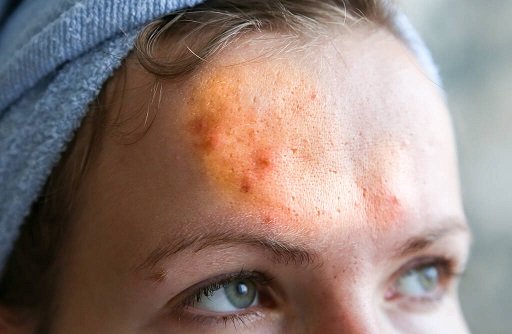Oily skin has its origin in the secretion of sebum on the skin’s surface hence is shiny and causes acne breakouts. This is attributed to over-activity of sebaceous glands which may be genetic or brought on by diet, hormonal imbalances or environmental factors such as climate. This is mostly done by washing gently while using non-greasy products.
Healthy skin should be checked and cleaned at every ideal time; thus, it is essential to have skincare for oily skin. Cleansing, toning, moisturizing, and using sunscreen are done routinely to keep the skin as wrinkle-free and as glowing as possible. It also serves as a shield against skin ageing, acne formation, skin dryness and other skin complications that may develop.
Understanding Oily Skin
Definition of oily skin
Oily skin is a skin type that secretes sebum, the skin’s oil, more than usual for one reason or another. This results in the production of huge pores and the sheen that is generally associated with oily skin at a higher level, and it may cause a high rate of acne in people.
Causes behind oily skin
Oily skin can be defined as skin that is naturally creamy in appearance, and this dominantly occurs after the sebaceous glands produce excessive sebum. Causes can include genetic components, hormonal disbalances, high stress, bad diet or even unsanitary conditions. Additionally, hot and humid climates can make skin oilier as well as the skin become oily due to other aspects also.
Oily skin is a natural skin condition characterized by excessive sebum production and secretion on the skin’s surface.
Oily skin contributes to acne, pimples and the formation of other skin problems zits, and shiny skin. By cleansing the skin in this method it creates a way for blackheads, pores, and oily areas to appear on the skin. But on the bright side, it begins to stress fewer lines and is substantially more sturdy as opposed to ageing.
Identifying Common Mistakes in Managing Oily Skin
Overwashing the face
If one washes their face more often than they should, they end up removing all the natural oils, leading to rough skin, redness, inflammation and premature ageing. It may even lead to acne by putting excess pressure on the glands to release more sebum when it is constantly slipping through your fingers. Therefore, excessive overwashing of the face should be discouraged as it has its benefits to an extent.
Knowledge is power especially when it comes to the wrong selection of products to apply to our skin.
Inexplicably using skincare products to handle the skin may lead to adverse effects such as skin rashes or skin breakouts. Therefore, it is advisable to use products that fit the client’s skin type and any vulnerability and potential danger to the skin should be avoided.
Skipping moisturizer
Not applying moisturizer leads to skin dryness and this is a sure way to age early.
In its simplest terms, if a person decides to leave moisturizer behind they are most likely to have their skin dry and this results in early aging. It also makes applying makeup difficult because the skin ends up being dehydrated and lipstick or powder does not sit well on the skin. It is essential to rehydrate our skin and body because this can spell the difference, especially in seasons or places where the climate is extreme.
Not drinking enough water
Lack of water has several issues on the body and has repercussions for the body, causing dehydration and a decline in overall functioning. Prolonged periods of low water intake may lead to several diseases including kidney stone formation, constipation, or deterioration of the brain functions, which manifest in conditions including headache, anxiety and sleeping disorders.



